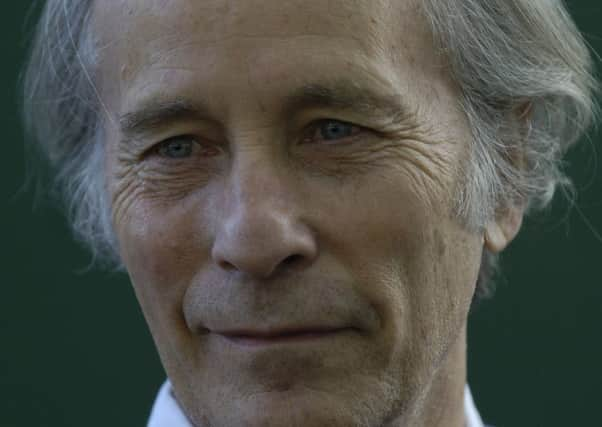Richard Ford brings Edinburgh International Book Festival to a close


Yesterday’s programme could almost have been framed to emphasise what we’ll be missing. When else do we get a chance to see great writers such as Richard Ford, this time talking about life in Trump’s America – and coming out yes, of course, with all the usual appalled embarrassment at their braggadocious leader, but also with a flinty anger at the Democrats’ failure, and a blithe disregard for ruffling liberal feathers?
Take Hilary Clinton. Picking a nonentity for a running-mate was “bone-headed” and “skill-less”, said Ford, when she could have chosen a Latino or African-American.
Advertisement
Hide AdAdvertisement
Hide AdAnd no, he wasn’t going to condemn, as she did, Trump’s supporters as “a basket of deplorables”: he’s glad at least that they got involved in the democratic process rather than staying out of it as usual, even if they did put Trump in the White House in the process.
And as for Democrat leaders like Nancy Pelosi – “Well, what is she still doing there? You lost! You failed.”
If you like your writers to be predictable, Ford’s not your man. I’ve never heard anyone I respect giving the New York Times a hard time for not acknowledging that – just for once – Trump was right over Charlottesville: “Two sides were involved”. Then again, nor do I know any writers who have spat on fellow-novelists who’ve given them a bad review (Colson Whitehead) or whose wife has shot a bullet through a book by an author who did just that too (Alice Hoffman) – or who would, as Ford did yesterday, laugh about it.
Similarly, I know few writers who would say that income inequality matters more than race (because it includes race) or who would object to statues of Confederate general Robert E Lee because he was a traitor, not a defender of slavery. Not everyone who wants those statues to stay up is a white cracker nationalist, he said: to unite the polity, you should move the statues to less divisive places, teach more history, educate people better.
And yet, and yet… Read Ford’s Frank Bascombe novels and you’ll realise that this selfsame man is also just about the most empathetic novelist in America. The audience who heard Ford talking about Between Them, his wonderful book about his parents, got a small hint why. In Independence Day, Ford shows Bascombe in mid-career as a real estate agent.
Cue 73-year-old novelist talking about those endless Sunday afternoon drives around suburban Jackson, Mississipi, with his beloved parents, the whole hours that passed as they looked at houses they’d never buy but would always dream of doing. Just like Bascombe, he said, his parents lived “applause-less” lives. Not any more, they don’t.
Empathy was, in fact, the theme of the festival’s last day. It was there front, back and centre in Peter Bazalgette’s discussion of his latest book, The Empathy Instinct.
Advertisement
Hide AdAdvertisement
Hide AdAnd if you thought the man who imported Big Brother to British TV wouldn’t be a good guide to the subject you’d be wildly wrong (“What’s Big Brother?” asked a man in the front row to general hilarity). This year Bazalgette became chairman of ITV, but he has spent four years before that as head of the Arts Council in England and is still the chair of a campaign to erect a Holocaust memorial in London.
Those two jobs both require oodles of empathy, but the arts job is all about funding its creation. If a book is an empathy engine (as the writer Neil Gaiman once observed), an arts council is – just like a book festival – an enormous empathy factory, an absolute necessity for creating a more civil society.
Earlier, as Natalie Hayes and David Vann both pointed out from the Spiegeltent stage, the interiority in Greek tragedy comes from the actors, not the text, so novelists had plenty of scope to redress the balance. Hayes has done that with The Children of Jocasta, which gives her heroine (Oedipus’s wife and mother, remember: it’s complicated) a lot more than the 120 lines Sophocles allocated her in Oedipus Tyrannos (“I can’t stop you calling it Oedipus Rex, but since he isn’t Roman or a dinosaur I’m not going to do it”).
As David Van said, though, their novels were more than just a feminisation of the past.
The original plays were a 5th century BC interpretation of a world already eight centuries in the past, and in Bright Air Black he had been trying to recreate that Bronze Age world when civilisation started to form, and the dangers of life were even wider – yet when, as he said, the Greeks showed “why we can hate the people we most love”. And how did they do that? By doing just what the last 17 days in Charlotte Square were all about. Creating empathy.